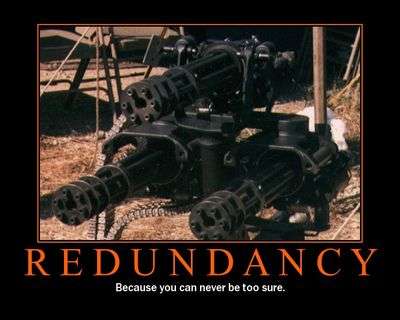I was checking out Brutally Honest, Rick’s site to follow up on a mildly interesting and explosively-expanding thread underneath the Harley Davidson “Screw It, Let’s Ride” commercial. I have found it to be a dialog worth following, because it has morphed into a deliberation of manhood; an inspection of what, exactly, it is. We can always use more of that, and I’ve noticed both sides are putting a lot of thought into it. Rick (and Gerard too, evidently) sympathized with the ad and the attitude it sought to promote. Guest blogger and frequent commenter BroKen did not. It would seem at first blush that such an exchange wouldn’t have much place to go, since it’s a battle between pet peeves and therefore between emotions. Rick is sick and tired of being told the planet is in danger and we all need to buy some carbon credits and unplug our cell phones; Ken is sick and tired of apathetic, irresponsible people.
I think Ken’s crime, here, is one of overanalysis. He’s rather like the guy who’s told the urban legend about the late-night pedestrian who sees two headlights coming toward him, assumes they’re motorcycles, and goes between them…is DRT (Died Right There)…and upon hearing the story, the guy asks “but how do they know what he was thinking if he died?” Sometimes logical questions can open up entire sub-arguments that, when all’s said & done, aren’t worth pursuing. It’s possible.
Also possible, is the Panic For Sake Of Panic, and although I’m sure Rick has other examples in mind besides global warming, the environmental movement is certainly central to his inspiration. We’re being called-upon to panic over things quite a lot lately. Panic is not constructive thinking. Masculinity, Ken’s comments about it notwithstanding, can have a lot to do with letting it pass by with little action, or even no action at all. This would be the “keep your head together” aspect of manliness. In the case of the gas that costs almost five bucks a gallon, our error is in forgetting supply-and-demand, being too quick to blame cartoonish stereotypes like “Oil Executives”…presuming that our destruction is desired by people who are engaged in trade with us, and not by the people who seek re-election to Congress periodically through messages that resonate with our suffering. In the case of global warming, we’re confronted by a boogeyman that exists in the mind. Buzzwords, a few “scientists” funded with George Soros’ money, the allure of knowing massive bureaucracies and orthodox fellowships are already mobilized into motion around the boogeyman. The ambition to be part of something huge, nevermind having no impact at all on what it does based on one’s individual participation in it. Like the Barack Obama campaign, modern radical environmentalism has become a tantalizing pastime for those among us who lack intellectual masculinity. Those who desire to clamber on board a massive ship so they can be seen being on it, to grab an oar and help row it so they can be seen rowing it…and have nothing to do with steering it. Steering entails decision-making, and decision-making involves far too much responsibility for the gelded mind.
The four-word tagline “Screw it, let’s ride” is a joke that’s gone over Ken’s head, I’m afraid. In some situations, it can be a healthy and mature attitude. Like, anytime panic is the point. When someone nameless and faceless wants you to lose your bearings, and whispers scary campfire stories into your ear so you’ll fearfully listen to whatever comes next. The headstrong, able-minded manly man says “screw it, let’s ride.”
Through the kernel of truth that was involved in the scary story to make the remaining 99% of the panic digestible, this may entail risk. But we tend to forget that life is all about risk, and it is only through the elimination of life that you completely eliminate all risk.
Enough about that particular confusion vis a vis manhood, masculinity, manly thinking, etc. Let us examine another flavor of such confusion. Let us turn our attention from those who over-analyze, to those who do not analyze enough.
Rick has some more good stuff that is worthy of comment.
Dahlia Lithwick has made a career out of commenting on American law, especially as it is molded and shaped in our Supreme Court. She was born, and remains, a Canadian citizen. If you’ve exchanged ideas over the innernets with enough Canadian citizens about American law, as much as I have, you know what’s strange about that. For the benefit of the uninitiated, I shall expound…
The weakness in her mindset is betrayed by the passage:
The conventional wisdom that the Supreme Court is precariously balanced on a knife’s edge—with four liberals and four conservatives battling for the heart and mind of swing Justice Anthony Kennedy—is too simplistic. The current term has seen enough unanimous and near-unanimous decisions to suggest that the story of a 5-4 court is dramatic but inaccurate. That said, it’s clear there are four justices on the bench who deeply mistrust the judiciary, in the manner of a Rockette who doesn’t care for dancing. Dissenting in this month’s habeas case, Justice Antonin Scalia predicted that judicial overreaching “will almost certainly cause more Americans to be killed.” John Roberts added that “unelected, politically unaccountable judges” should not shape detention policy. One more jurist at the high court who generally believes that jurists cannot be trusted would spell the difference between a court that is a coequal branch of government and one that cheers from the bleachers. [emphasis mine]
Okay, now for this to make any sort of sense — you have to believe that any self-imposed limitation on the Supreme Court’s authority would be tantamount to an internal, self-criticizing belief “that jurists cannot be trusted.” Her “Rockette” crack makes it clear, to me, that she means to devalue such restraint, to make it equivalent into almost to sort of a mental illness. Perhaps she doesn’t realize the extraordinary intellectual difficulty that would be involved in applying this rule to the Supreme Court, and keep other institutions insulated from it, but I’m willing to go out and a limb and presume: Dahlia Lithwick does not believe in restraint of authority anywhere. Wherever someone can order something, they should. She probably liked it just fine when Gavin Newsom handed out marriage licenses when the law clearly said he didn’t have the authority to do it; I’m sure she was just as fond of the Supreme Court giving George Bush the smackdown over Guantanamo detainees and military tribunals.
How about President Bush’s decision to form those tribunals before the Supreme Court decision came down? If I’m correct in thinking Lithwick admires lack of authoritative self-restraint, that’d be a great example of it. Her careless, breezy use of the word “coequal” implies that she thinks the three branches should be able to do more-or-less the same things, and her implication that the Supreme Court carries legislative power would help to substantiate that. Somehow, I don’t think Lithwick is going to be quite as big a fan as that. No, she likes restraints on government-branch power to be jettisoned, when the decision under consideration is one she happens to like.
You simply can’t have separation of powers…a uniquely American doctrine…with that in place. Furthermore, as it’s been pointed out in many other places since then, Lithwick is engaged in some Holy Battle in which we old white males represent the forces of evil, because we’re old, white and male:
Anybody who believes the current Supreme Court looks like America needs to take a few more trips on a Greyhound bus. All the judges are white and/or old; most are both. [emphasis mine]
I have to stand on what I entered at Rick’s place:
What I wouldn’t give for a pleasant (hopefully, to stay that way) dinner conversation with her, or someone from this planet. Is their idea of the “wall of separation” between judiciary & legislature, the same as mine? Do they even have one? Or are they so much into “pack every single panel that has any authority at all with good people like me” that they haven’t even put that much thought into it?
In order to define what exactly is wrong with nutty, delusional people, sometimes it’s necessary to state the obvious. Popular belief notwithstanding, this is something I really hate doing…but let’s go for it.
You have a law. Like most laws, it leaves room for interpretation. Perhaps because the law exists in a context in which it’s impossible to avoid that, or perhaps because the law just happens to be worded badly. Let’s make it a badly worded law to make the example clearer — the law is:
Don’t Drive Fast Here
You drive through there at 45 because you think that isn’t fast. Why, on the freeway, you’re allowed to go as fast as 65! But the cop who busted you thinks anything over 30 is pretty fast. He busts you. You appeal. The case goes all the way to the Supreme Court.
The Court, here, essentially has two options: 1. It can uphold your penalty or 2. It can let you off the hook. It comes down to the “opinion” of the Justices overruling all other opinions now and forevermore (or at least, until a better sign is put up with a better law behind it). The side effect is that, if you are let off the hook for driving 45, it will become legally impossible to cite someone for driving through the same thoroughfare doing 35. On the other hand, if you’re busted, then anyone who gets a ticket for driving 55 and wants to appeal can just forget it.
This is jurisprudence. It is, specifically, stare decisis et non quieta movere; “stand by and adhere to decisions and not disturb what is settled” — or at least, that’s what it is called the next time a different case presents the same question. It is “law,” in all the ways that matter, but without democratic participation by the electorate, without critical thinking, without deliberation about cause-and-effect. Consistency is the only virtue to it.
I made reference to Lithwick’s “planet.” On mine, stare decisis is a noble ideal but when too much emanates from it, that is a toxic agent. So people like me see the Supreme Court as engaged in a struggle, to continue deciding cases for as many decades as possible without hopelessly tying itself up into a huge knot. The nightmare scenario is one in which stare decisis runs headlong off in one direction, and common sense sprints in the opposite direction. At that point, the Supreme Court must overrule itself, and admit that justice has been miscarried. For years.
Lithwick’s planet is one in which this is a desirable outcome. Bad laws like “Don’t Drive Fast” breathe life into the judicial branch, give it a reason for being “coequal,” and the courts are at their most noble and glorious when they seize this false authority and wield it.
I do not know what people on Planet Lithwick mean by “coequal,” exactly. I really don’t. I don’t think they know either. It’s clear to me they think decisions are “good” when they exude greater volumes of stare decisis side-effect…make things illegal that weren’t before…make things legal that were illegal before. It’s obvious they think more highly of the decision when the interpreted effect is contrary to the reasoned expectation of Congress, or other lawgivers, when the laws were legislated or ratified. They place a value on unintended consequences.
On my planet, we call that what it is: Bad law. We count on the judicial branch to step in, and make law that way where it did not exist previously — when Congress is unwilling, or unable, to do it’s job. And it’s an occasion for mourning, not celebration, because we know a law has just been made that has no common sense behind it. We know a “committee” decision — the most dreadful kind — has just been made, and nobody will be accountable to it because it will not have been made in any one individual’s name. Breathy, throwaway phrases like “evolving social mores” and “standards of decency” will be used to announce the results of polls — polls that were in fact never taken. Impact without ownership. Remember what I said about decision-making being an unacceptable burden to a gelded mind. This is an entire system of government, ruled by gelded minds.
So I agree with Planet Lithwick about the stakes being “very high.” She’s right. Just not in the way she thinks she is.
This is America. You may have heard of it, Dahlia. It is a place where our Supreme Court, and all the rest of our judicial branch…is not a supplementary Congress.
Our real Congress has long vacations for a reason, after all — we can only take so much of what they do. The courts are places where Congress’ messes are cleaned up. Congress certainly doesn’t need help making them.









 That’s me, clarifying the eighth rule for
That’s me, clarifying the eighth rule for  I know she will, because she’s not one of these pure-bred small-l libertarians who obsess over legalizing pot and heroin and crystal meth — and beyond that, their concerns over individual rights come to a screeching halt. You know the type. Becky isn’t like that at all. She thinks for herself; I mean, she really does. She’s a feminist, Catholic, gay, conservative in her own way…I think pro-gun…the girl just isn’t that anxious to fit into any kind of cookie-cutter.
I know she will, because she’s not one of these pure-bred small-l libertarians who obsess over legalizing pot and heroin and crystal meth — and beyond that, their concerns over individual rights come to a screeching halt. You know the type. Becky isn’t like that at all. She thinks for herself; I mean, she really does. She’s a feminist, Catholic, gay, conservative in her own way…I think pro-gun…the girl just isn’t that anxious to fit into any kind of cookie-cutter.



 What is really destructive about this, is the method by which these pronouncements are made. Former President Carter’s comments and bullying implications notwithstanding, there is no verbiage in the Constitution or in any treaty, not on any legally binding hunk of paper floating around anywhere, that outlaws preemptive war. When our small-l libertarians call that “illegal,” they mean someone said “That’s just wrong! Can I get an amen here?” and a bunch of other small-l libertarians said “Hell yeah!”
What is really destructive about this, is the method by which these pronouncements are made. Former President Carter’s comments and bullying implications notwithstanding, there is no verbiage in the Constitution or in any treaty, not on any legally binding hunk of paper floating around anywhere, that outlaws preemptive war. When our small-l libertarians call that “illegal,” they mean someone said “That’s just wrong! Can I get an amen here?” and a bunch of other small-l libertarians said “Hell yeah!”